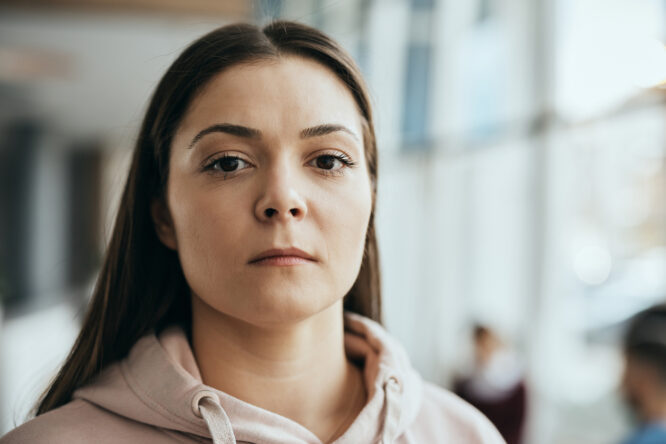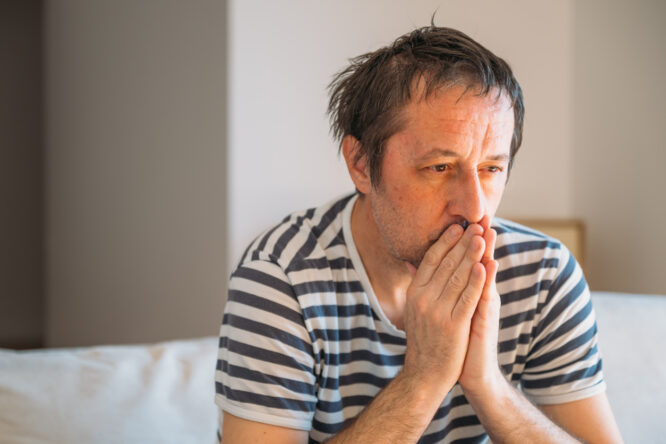We all have painful things in our past that sting, no matter how long ago they happened.

Emotional flashbacks can feel like you’re suddenly back in an old wound—except there’s no clear trigger, just an overwhelming rush of feelings that don’t match the present moment. They can hit you when you last expect it, and that’s what makes them so tough to deal with. However, understanding what’s happening and why it comes over you can go a long way towards dealing with them when they do overtake you.
1. Emotional flashbacks are intense feelings from the past showing up now.

Unlike visual flashbacks that bring up clear images, emotional flashbacks feel more like waves of shame, fear, sadness, or panic that don’t seem to have a cause. You might feel like a helpless child again, even if nothing around you seems threatening.
These moments can be deeply confusing because they disconnect you from the present. You might find yourself reacting to a tone of voice or a comment with a level of emotion that doesn’t make sense on the surface, but it makes total sense to your nervous system.
2. You might not even realise it’s a flashback at first.

One of the trickiest things about emotional flashbacks is that they don’t always announce themselves. You might just feel incredibly anxious, ashamed, or frozen, and not understand why you’re spiralling over something small. People often think they’re overreacting or “too sensitive,” but what’s actually happening is their past pain is getting stirred up. Recognising it’s a flashback, rather than blaming yourself, can be the first step toward regaining some control.
3. They’re especially common for people with childhood trauma.

Those who experienced emotional neglect, abuse, or unstable environments growing up are more prone to emotional flashbacks. The brain and body adapt to survive those early years, but those same protective responses can get stuck on repeat.
If you grew up constantly scanning for danger or trying to stay small to avoid trouble, your nervous system might still react that way, even in safe situations. Emotional flashbacks are your body trying to protect you, even when there’s no threat anymore.
4. They’re not dramatic or made up—they’re nervous system responses.

Emotional flashbacks aren’t attention-seeking or dramatic reactions—they’re biological. They come from the survival parts of the brain kicking into high gear, trying to keep you safe based on past experiences. They can’t be talked away or snapped out of in the moment. That’s why it’s important to respond with self-compassion instead of shame. You’re not broken or weak. You’re someone whose body remembers what it’s been through.
5. Shame is often the biggest emotion in emotional flashbacks.

One of the strongest signs of an emotional flashback is a sudden surge of shame. You might feel like you’re bad, wrong, or unloveable without knowing why. It’s a horrible feeling that can take over quickly and feel impossible to shake.
It has nothing to do with low confidence. Instead, it’s often a replay of old emotional environments where love felt conditional or where criticism was constant. Recognising that this shame isn’t about now can help you start to pull away from its grip.
6. Emotional flashbacks can make you want to hide or disappear.

During a flashback, your first instinct might be to withdraw completely. You might suddenly feel like everyone hates you, that you’re a burden, or that you need to shrink to be safe. That’s not you being dramatic; it’s survival mode kicking in. Even if the situation doesn’t call for it, your body is reacting like it did back then, when disappearing felt like the safest thing. Reminding yourself that you’re safe now can slowly help break that pattern over time.
7. You may lash out or shut down without understanding why.

Some emotional flashbacks look like snapping or stonewalling, not because someone’s trying to be difficult, but because they feel emotionally overwhelmed and need to self-protect. These reactions often feel automatic and confusing afterward. It doesn’t make a person cold or reactive. It’s about trying to manage a tidal wave of emotion with the tools they have in that moment. Understanding this can help you be gentler with yourself instead of drowning in guilt later on.
8. Grounding techniques can help bring you back to now.

When you’re in the thick of a flashback, grounding can help your brain realise you’re in the present. Touching something textured, naming things in the room, or splashing cold water on your face are simple ways to reconnect with the now.
It doesn’t make the pain disappear instantly, but it helps re-anchor you in your body and space. These techniques give your nervous system a signal that you’re not in danger anymore, which can gradually reduce the intensity of the flashback.
9. Label what’s happening instead of spiralling.

Just saying to yourself, “This is an emotional flashback,” can reduce the panic and confusion. Naming it helps create space between you and the experience. It moves you from reacting to observing, which is a huge win in itself. It might feel odd at first, but reminding yourself that you’re safe and that this feeling is about the past, not now, can soften the edges of the emotion and help you ride it out with more clarity.
10. Self-soothing helps more than self-talk sometimes.

During emotional flashbacks, logic often goes out the window. So rather than trying to “reason your way out,” it can be more helpful to comfort yourself physically. Wrapping up in a blanket, hugging a pillow, or playing calming sounds can help. Your nervous system doesn’t need facts—it needs to feel safe. Soothing your body often speaks louder than words in moments like these, especially if your brain is flooded and can’t process much else.
11. Triggers aren’t always obvious or dramatic.

It might not take a major event to trigger an emotional flashback. A certain tone, a smell, or even being misunderstood can suddenly bring up a huge emotional reaction without warning. It’s often subtle, which makes it harder to catch.
This is why it’s helpful to stay curious rather than judgemental. If you suddenly feel off, it might be worth asking: “Does this remind me of something?” That gentle questioning can help you make connections and regain a sense of calm faster.
12. Processing trauma can reduce the frequency as time goes on.

Flashbacks tend to lessen when old wounds are given space to be understood and healed. Whether through therapy, journaling, or gentle reflection, allowing yourself to work through those early emotional experiences can change how often they resurface.
You don’t have to relive everything to heal. But making sense of what happened, and how it shaped you, can loosen its grip and help your body feel safer in the present. It’s not instant, but it’s absolutely possible.
13. You can’t always stop them, but you can survive them.

Even when emotional flashbacks feel like they’re taking over, they always pass. You don’t have to fix them in the moment—just surviving them and reminding yourself you’re okay is enough. That in itself is healing. The more you meet them with patience and self-compassion, the more power you take away from the past. It’s not about avoiding every flashback forever—it’s about learning how to ride the wave with your feet on the ground.




